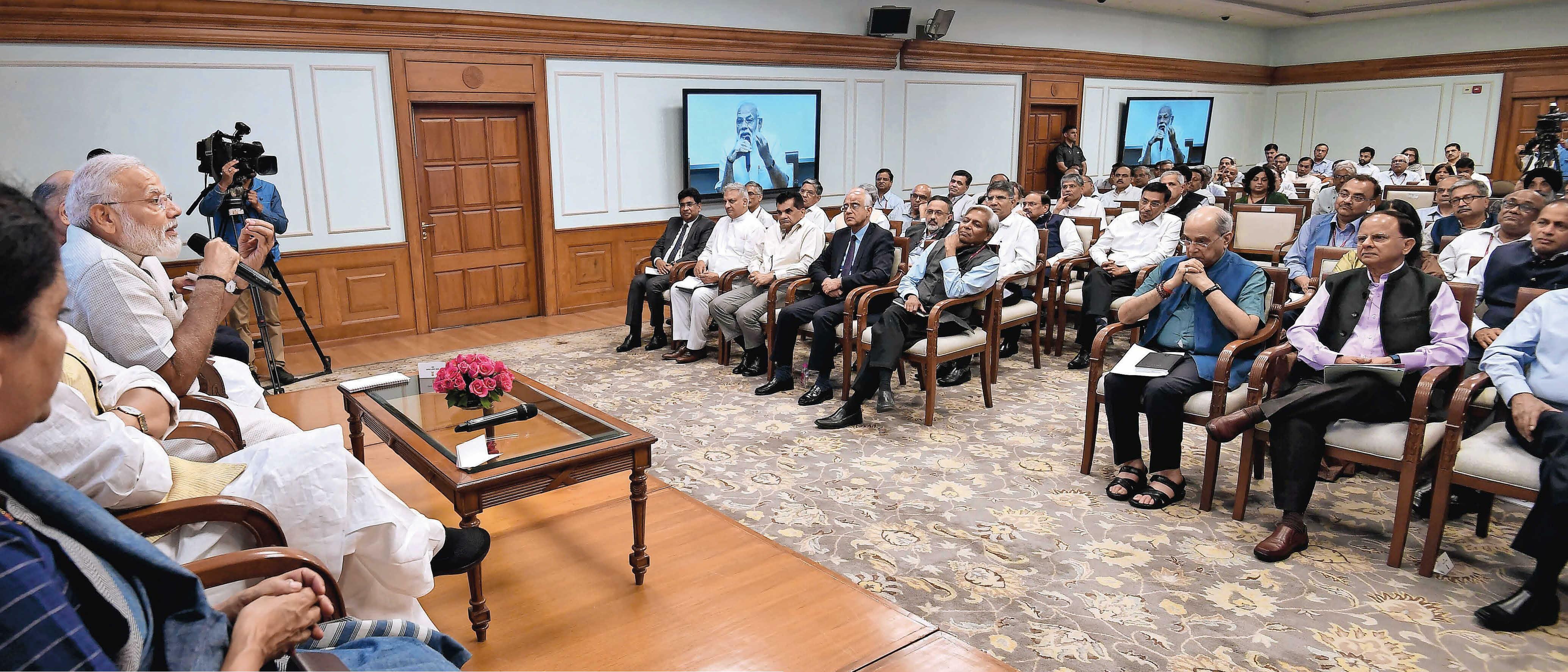
While serving as chief minister of Gujarat, Narendra Modi was annoyed when some of his aides complained about a senior bureaucrat’s incompetence and character flaws. Asking them why the concerns were not flagged earlier, he said promotion committee meetings had no meaning if all officers were automatically promoted. Such thoughts perhaps triggered the ongoing remodelling of India’s bureaucratic steel frame.
The most striking feature of the remodelling is the new 360-degree appraisal, which determines the selection of joint secretaries and higher officers at the Centre. This first big change has shaken up a privileged section in the bureaucracy in Lutyens Delhi.
But how did the cosy club come into being? According to Rajiv Mehrishi, a 1978-batch IAS officer who served as finance secretary, home secretary and comptroller and auditor general of India, it was the product of the country’s socialist system. He said: “Accepted first as a policy and then as a constitutional obligation, avowedly for the benefit of the poor, it, in fact, created an elite whose vested interest was to keep talking about the poor and keep benefiting from a system that gave them a privileged existence and a superior social status.”
It created a situation where the levers of power were wielded by an elite club of English speakers, as divorced from real India as any Indian could be. “We have had generations of bureaucrats, judges, doctors and lawyers, almost as if obtaining positions by inheritance had not been discontinued,” said Mehrishi.
Denne historien er fra January 08, 2023-utgaven av THE WEEK India.
Start din 7-dagers gratis prøveperiode på Magzter GOLD for å få tilgang til tusenvis av utvalgte premiumhistorier og 9000+ magasiner og aviser.
Allerede abonnent ? Logg på
Denne historien er fra January 08, 2023-utgaven av THE WEEK India.
Start din 7-dagers gratis prøveperiode på Magzter GOLD for å få tilgang til tusenvis av utvalgte premiumhistorier og 9000+ magasiner og aviser.
Allerede abonnent? Logg på

What Will It Take To Clean Up Delhi Air?
IT IS ASKED, year after year, why Delhi’s air remains unbreathable despite several interventions to reduce pollution.

Trump and the crisis of liberalism
Although Donald Trump's election to a non-consecutive second term to the US presidency is not unprecedented—Grover Cleveland had done it in 1893—it is nevertheless a watershed moment.

Men eye the woman's purse
A couple of months ago, I chanced upon a young 20-something man at my gym walking out with a women’s sling bag.

When trees hold hands
A filmmaker explores the human-nature connect through the living root bridges

Ms Gee & Gen Z
The vibrant Anuja Chauhan and her daughter Nayantara on the generational gap in romance writing

Vikram Seth-a suitable man
Our golden boy of literature was the star attraction at the recent Shillong Literary Festival in mysterious Meghalaya.

Superman bites the dust
When my granddaughter Kim was about three, I often took her to play in a nearby park.

OLD MAN AND THE SEA
Meet G. Govinda Menon, the 102-year-old engineer who had a key role in surveying the Vizhinjam coast in the 1940s, assessing its potential for an international port

Managing volatility: smarter equity choices in uncertain markets
THE INDIAN STOCK MARKET has delivered a strong 11 per cent CAGR over the past decade, with positive returns for eight straight years.

Investing in actively managed low-volatility portfolios keeps risks at bay
AFTER A ROARING bull market over the past year, equity markets in the recent months have gone into a correction mode as FIIs go on a selling spree. Volatility has risen and investment returns are hurt.